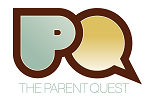Parents strongly believe that print books for their beloved kids can’t be replaced with the digital version of that book, also known as an e-book. They’re convinced that real books foster imagination; they’re a lot more intimate and accessible, not to mention that they can be felt. Kids are at liberty to touch the image, analyse them, and relate to the story in the most personal way possible. E-books can’t do that; everything is digitized, and although the gadget might seem cool for kids, the simple idea that it’s electronic will distract their attention and make them lose focus.
A survey performed in New York City – that promotes real book reading, especially in kids – brought to the surface a really interesting fact. Parents who are raising their children in a digitized environment are still reading print books to them before bedtime. Over 1,200 people participated at the study, and most parents truly believe that they’re nothing more personal and interesting than an actual book.
E-books are a distraction
A lot of parents are convinced that e-books are a distraction and not a learning tool. Kids will be amazed by the technology and they will most likely ignore the story that is being presented to them. Although it is impossible to keep kids away from gadgets and revolutionary gizmos, we can still raise them to love print books. Most young parents are tech freaks, yet when it comes to reading some of them still find real books a lot more appealing.
Children’s books on a Kindle are not that attention-grabbing as print books. At some point your child will want to read on his own (or at least admire the image); yet he won’t be able to do that if the gadget breaks down or is not within easy reach. It’s really important for your kids’ room to have books. Place them everywhere and allow your loved one to act by himself. Try not to be too persistent and before you know it, Huckleberry Finn will become your boy’s best friend.
Books vs. e-books for kids
New findings on digital books have generated quite a buzz. Specialists are hinting at the negative influences of e-books on children. A UK report mentions that electronic reading is poorly done, and that parents should find a way to make their children read print books. While it’s true that e-reading is done more frequently, kids are paying more attention to the images and videos on an iPad rather than focus on the text. Technological gizmos are distracting children of all ages (especially those who can’t read) and as much as the media is trying to advertise e-books for kids, most parents are still convinced that paper books are a lot more educative.
Why do parents think it’s important for kids to read print books?
9 in 10 parents who are tech-savvy say that minor children should stick to print books. As a matter of fact, most of these parents are not even allowing their little ones to digitally-read. Electronic books are not books and can’t be replaced. That’s because paper books are intimate – they foster creativity, imagination, and they can be carried around at all times, 24/7. Parents say that nothing can be compared with the feeling of holding your baby in your lap and flipping an old-fashioned kids’ book before bedtime. The excitement felt by the baby and the eagerness for the parent to turn the page will never be substituted with sliding on to the next page from an iPad.
Some parents strongly believe that e-books affect their kids ‘brains. Although e-reading is not the same thing as video gaming or watching TV, there are parents who consider that these activities are related. They might be right, to some degree; yet, the allegation is partially unfounded. Digital books are placed in the same category with computer activities, which is why parents fear that e-reading can develop a child’s inner desires to spend more time playing with tech devices such as smartphone, tablets, laptops, and consoles.
Although we can keep our kids away from technology when they’re young, this doesn’t mean we should force them to ditch technology. Right now, it’s more difficult than ever to make a child love books; yet’ it’s not something impossible to achieve if you start reading paper books together from a very early age.

















